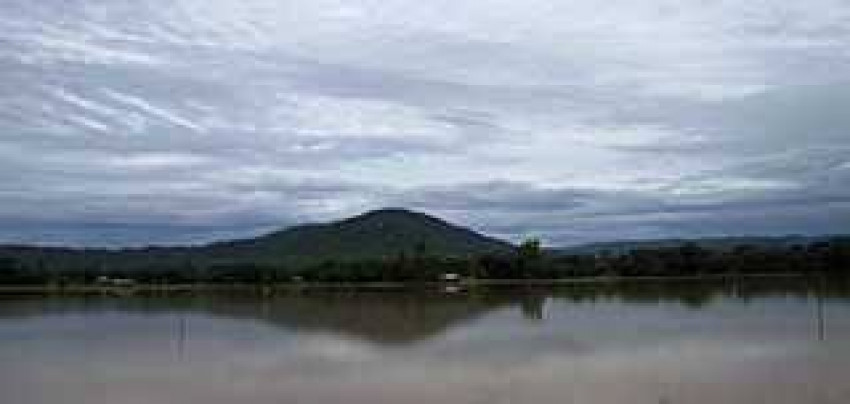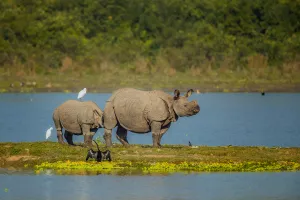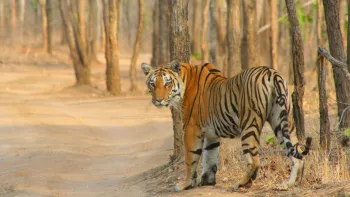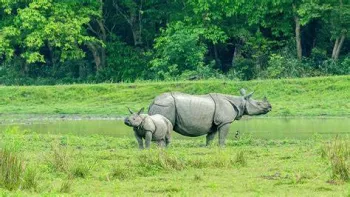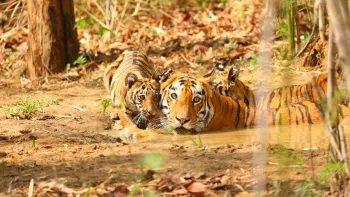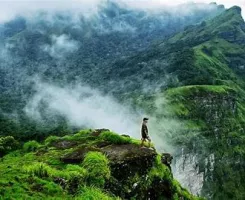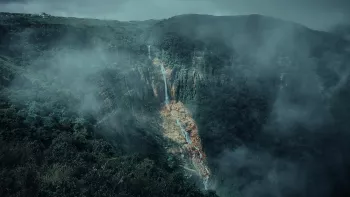Marat Longri National Park Travel Guide
Marat Longri National Park, located in the heart of South America, is a biodiverse paradise renowned for its lush rainforests, diverse wildlife, and stunning landscapes. This national park is a haven for nature lovers and adventure enthusiasts, offering a glimpse into the untouched beauty of the region. With its rich history, unique geography, and vibrant culture, Marat Longri National Park is a must-visit destination for travelers seeking an immersive experience in the wild.Top Attractions in Marat Longri National Park
- Exploring the dense rainforests and spotting exotic wildlife
- Hiking to breathtaking waterfalls and scenic viewpoints
- Embarking on a thrilling canopy tour for a bird's eye view of the park
- Visiting indigenous communities to learn about their traditions and customs
- Relaxing on pristine beaches and enjoying water activities in the crystal-clear waters
Marat Longri National Park is Famous for
Its unparalleled biodiversity and conservation efforts.Top Attractions in Marat Longri National Park
- Exploring the dense rainforests and spotting exotic wildlife
- Hiking to breathtaking waterfalls and scenic viewpoints
- Embarking on a thrilling canopy tour for a bird's eye view of the park
- Visiting indigenous communities to learn about their traditions and customs
- Relaxing on pristine beaches and enjoying water activities in the crystal-clear waters
What's Great about Travelling to Marat Longri National Park?
- Experience the wonders of untouched nature
- Opportunity to immerse in local culture
- Perfect destination for adventure seekers
What's Not So Great about Travelling to Marat Longri National Park?
- Limited tourist infrastructure
- Remote location may not be suitable for all travelers
- Weather conditions can be unpredictable
Travel Tips for Marat Longri National Park
- Obtain necessary permits for entry into the national park
- Pack insect repellent and suitable hiking gear
- Respect local customs and traditions
Important Marat Longri National Park trip information
- Ideal Duration: 5-7 days
- Best Time to Visit: Dry season from June to September
- Nearby Airports and Railway Stations: Nearest airport is in the city of Santa Rosa
Per Person
24,400
*EXCLUDING APPLICABLE TAXES Per Person
15,000
*EXCLUDING APPLICABLE TAXES Per Person
40,000
*EXCLUDING APPLICABLE TAXES Per Person
18,000
*EXCLUDING APPLICABLE TAXES Per Person
34,990
*EXCLUDING APPLICABLE TAXES Per Person
16,500
*EXCLUDING APPLICABLE TAXES 5.0 Ratings
( 9 Reviews )
( 9 Reviews )
FAQ's on Marat Longri National Park
Q1: What is the best time to visit Marat Longri National Park?
The best time to visit Marat Longri National Park is during the dry season, which typically falls between June and October. This period offers pleasant weather for exploring the park, with lower chances of rain. Additionally, wildlife sightings are more common during the dry season as animals gather around water sources. However, if you prefer lush greenery and the possibility of birdwatching, the wet season from November to May might be more suitable despite occasional rain showers.
Q2: Do I need a visa to travel to Marat Longri National Park?
Travelers to Marat Longri National Park may require a visa, depending on their nationality. It is advisable to check the specific visa requirements with the country's embassy or consulate. Some nationalities may be eligible for visa exemptions or visa-on-arrival facilities. Make sure to have a valid passport with sufficient validity and blank pages for entry stamps.
Q3: What are the must-visit attractions in Marat Longri National Park?
Marat Longri National Park boasts a diverse range of attractions, including the stunning Longri Waterfall, the picturesque Marat Lake, and the challenging Longri Mountain hiking trails. Wildlife enthusiasts can enjoy birdwatching and spot rare species like the Marat Eagle. The Marat Longri Cultural Village offers a glimpse into the local way of life and traditional dances. Don't miss the opportunity to explore the lush rainforests and unique flora and fauna that make the park a paradise for nature lovers.
Q4: Is Marat Longri National Park a safe place to travel?
Marat Longri National Park is generally safe for visitors, but it's essential to take precautions like staying on designated trails, avoiding isolated areas, and following park rules. Be mindful of wildlife encounters and respect the environment. It's advisable to travel with a guide, especially for hiking and wildlife viewing activities. As in any natural setting, being prepared with essentials like water, sunscreen, and insect repellent is recommended.
Q5: What is the local currency in Marat Longri National Park and can I use credit cards?
The local currency in Marat Longri National Park is the Maratian Dollar (MAD). While credit cards are accepted in larger establishments like hotels and major stores, it's advisable to carry cash for smaller purchases and in remote areas. ATMs are available in towns near the park, but it's recommended to have some cash on hand for convenience. Inform your bank of your travel plans to avoid any issues with card transactions.
Q6: What is the local cuisine like in Marat Longri National Park?
Marat Longri National Park offers a delightful culinary experience with a mix of traditional Maratian dishes and international cuisine. Try local specialties like grilled Maratian fish, cassava-based dishes, and tropical fruits. Seafood lovers will appreciate the fresh catches from Marat Lake. Vegetarians can enjoy plantain-based dishes and flavorful stews. Don't miss the opportunity to taste Maratian coffee, known for its rich flavor and aroma. Be open to exploring street food stalls for authentic local flavors and dining experiences.
Q7: What transportation options are available in Marat Longri National Park?
Transportation options in Marat Longri National Park include buses, taxis, and car rentals for getting around the park and nearby areas. Public buses connect major towns to the park entrance, but schedules may be limited. Taxis are a convenient option for short distances and can be hired for day trips or tours. Car rentals provide flexibility for exploring the park at your own pace, but it's essential to have a valid driver's license and insurance. Guided tours and transfers are also available for hassle-free transportation and sightseeing experiences.
Q8: Are there any cultural norms or etiquette I should be aware of when visiting Marat Longri National Park?
When visiting Marat Longri National Park, it's important to respect local customs and traditions. Dress modestly when interacting with the Maratian community, especially in cultural villages and sacred sites. Greet locals with a friendly "Kwaheri" (hello) and ask for permission before taking photographs. Avoid discussing sensitive topics like politics or religion unless invited to do so. Tipping is appreciated in restaurants and for services like guided tours. It's customary to remove your shoes before entering homes or certain establishments. Embrace the warmth and hospitality of the Maratian people, and you'll create memorable experiences while exploring the park.
Q9: I am a travel agent. How can I buy travel leads of Marat Longri National Park?
Register yourself as a travel agent at agents.tripclap.com and then you can buy travel leads to Marat Longri National Park once your account is approved. For more details contact our support team at +91-8069186564 or support@tripclap.com
